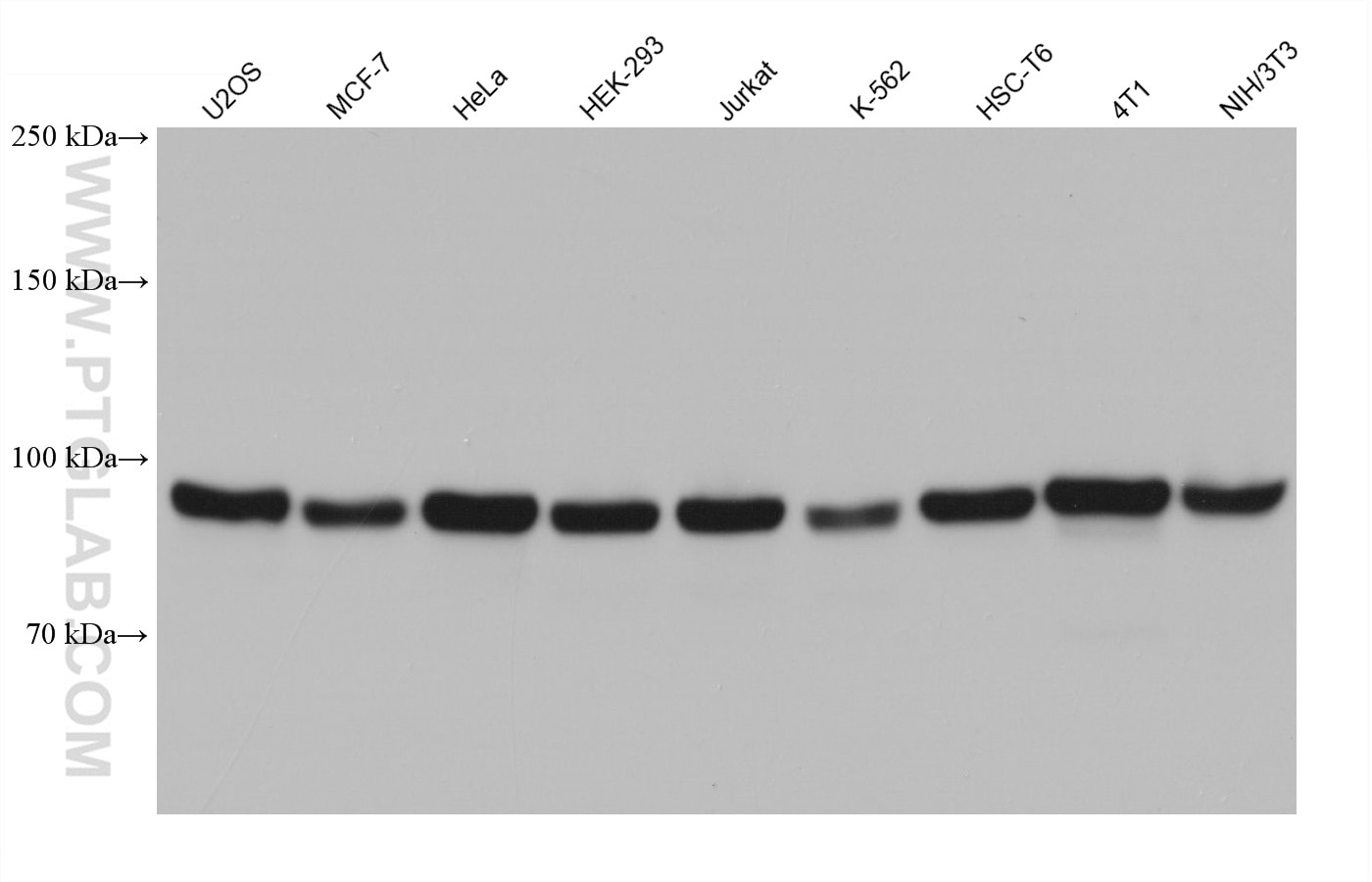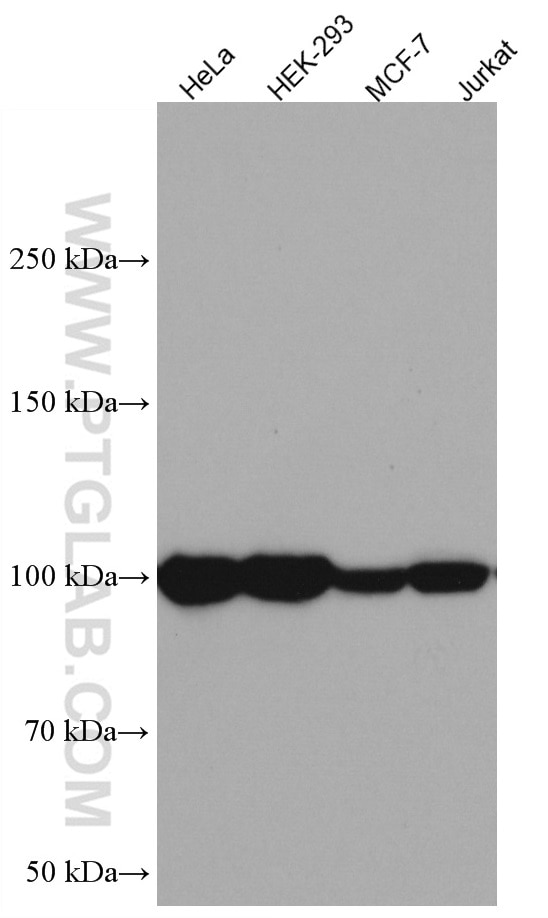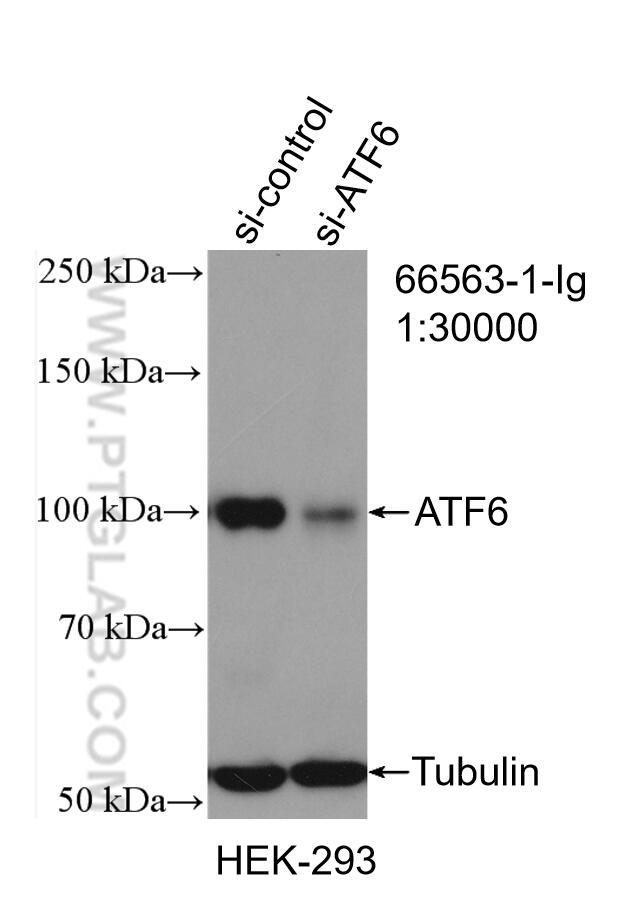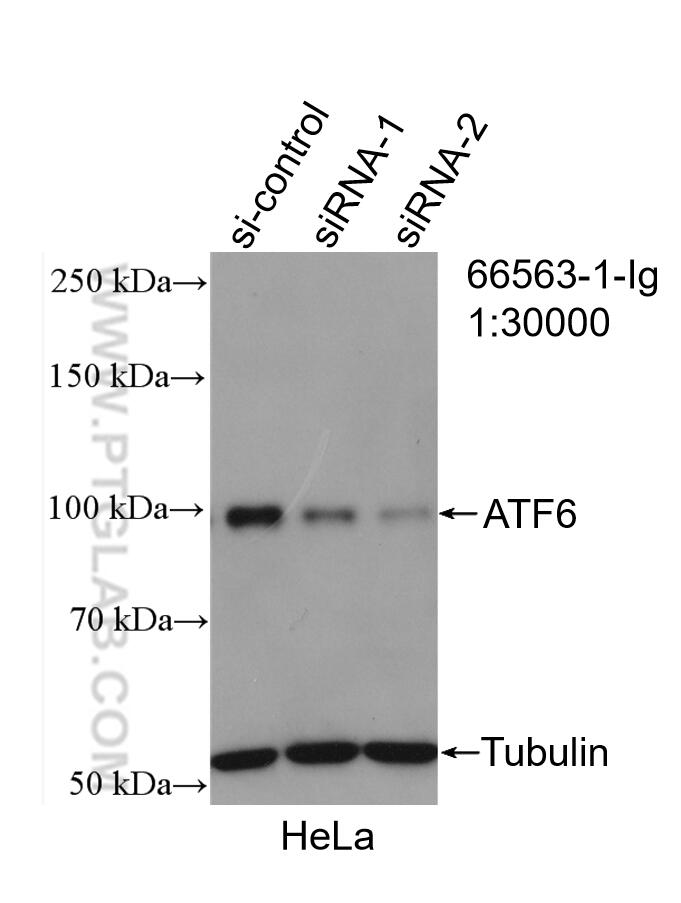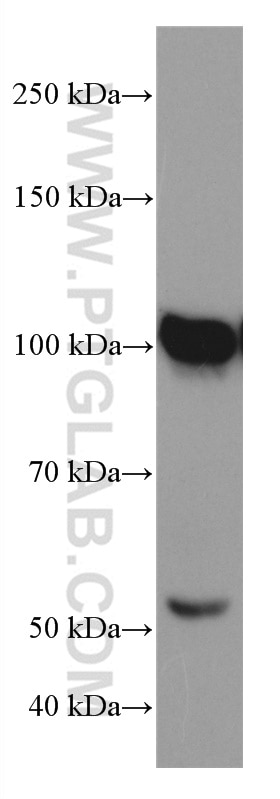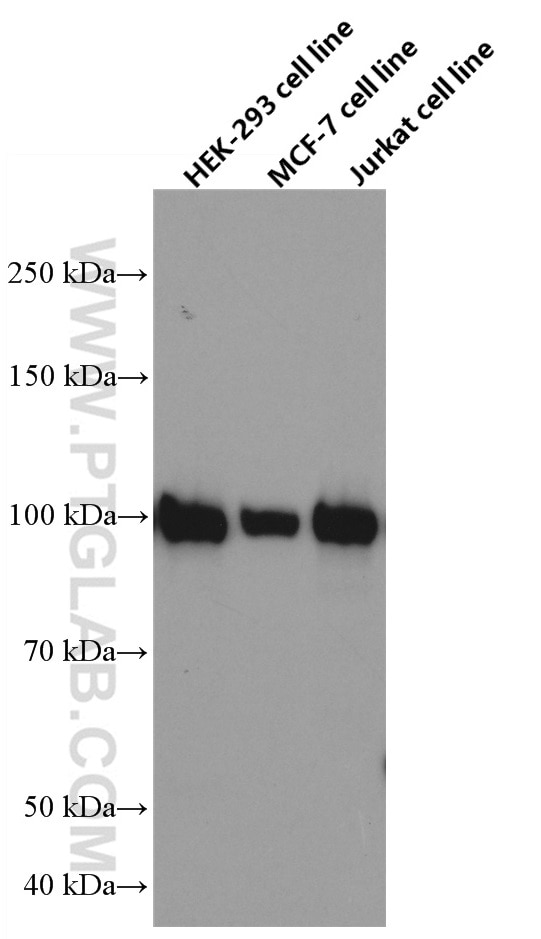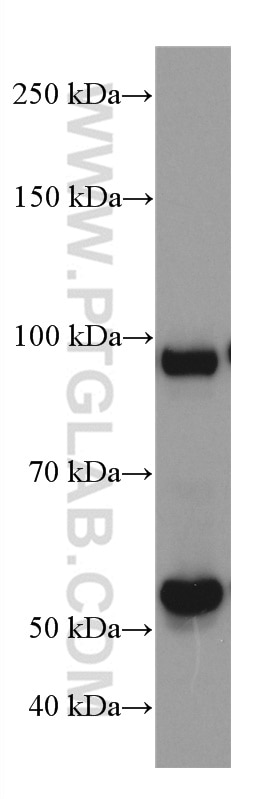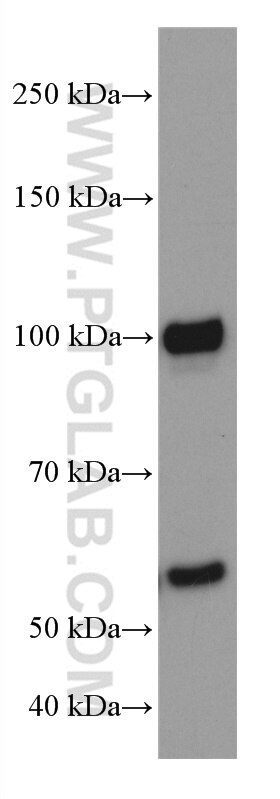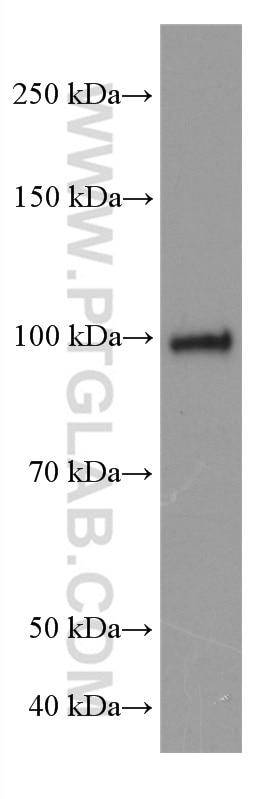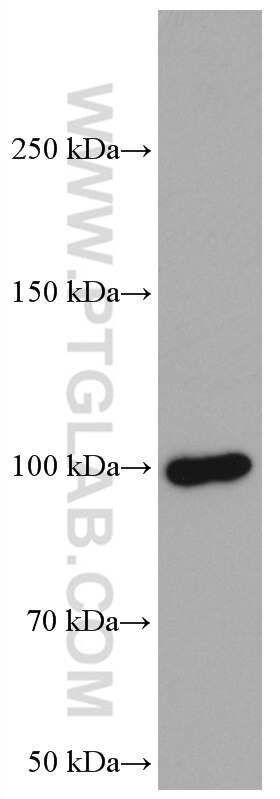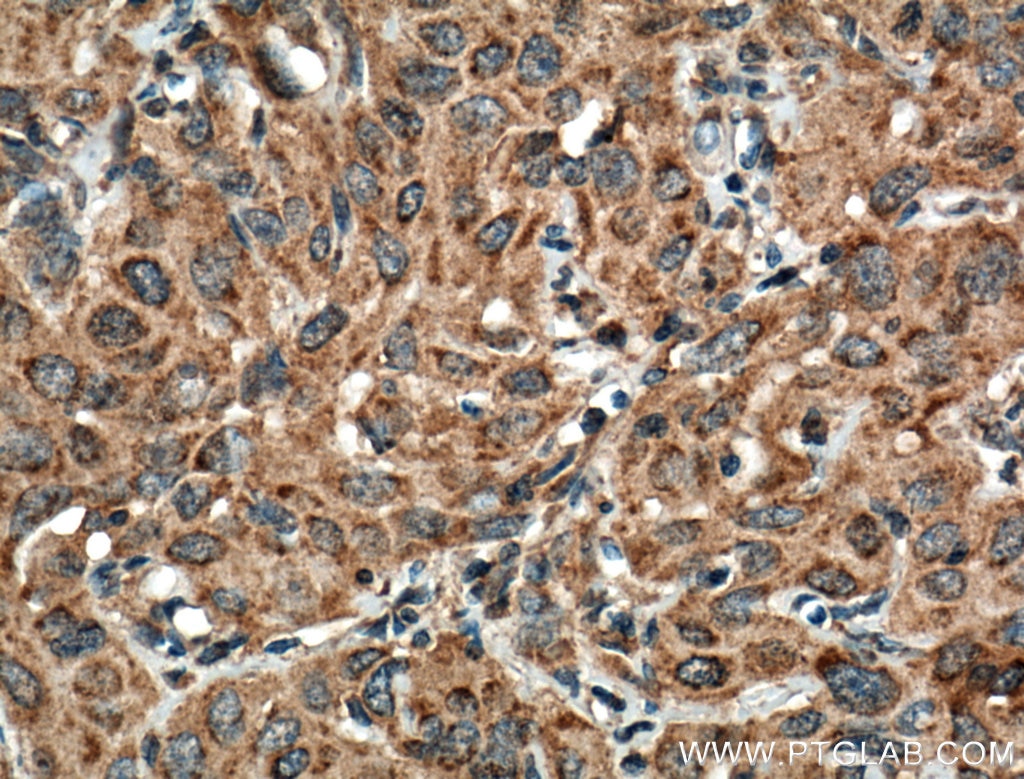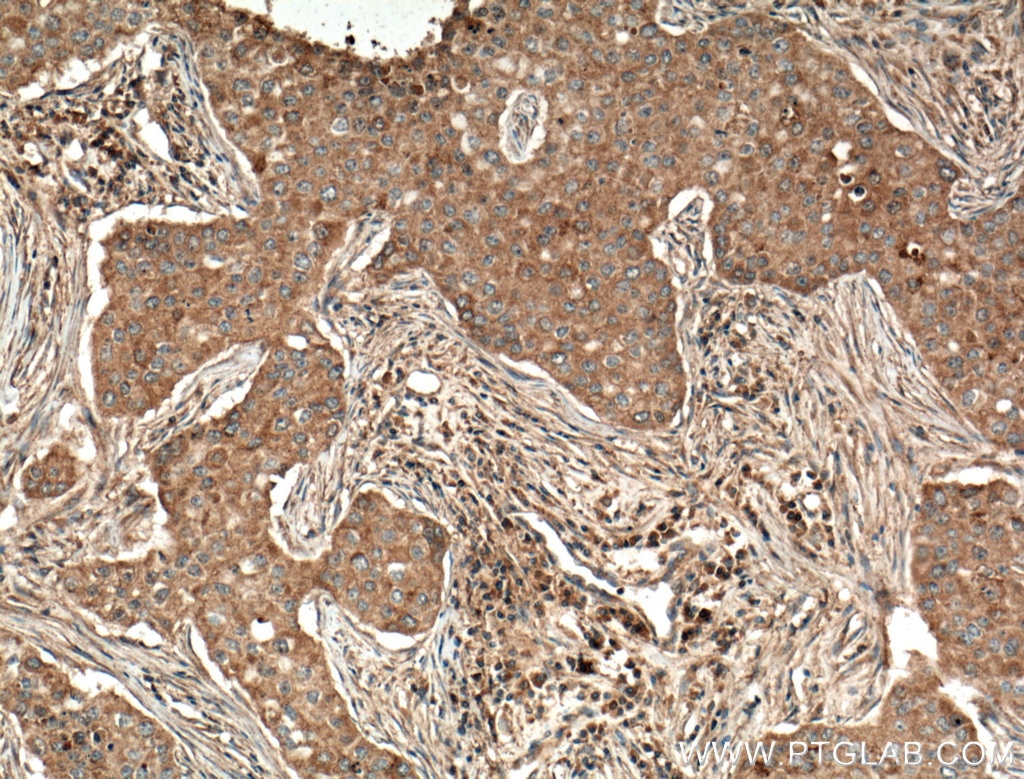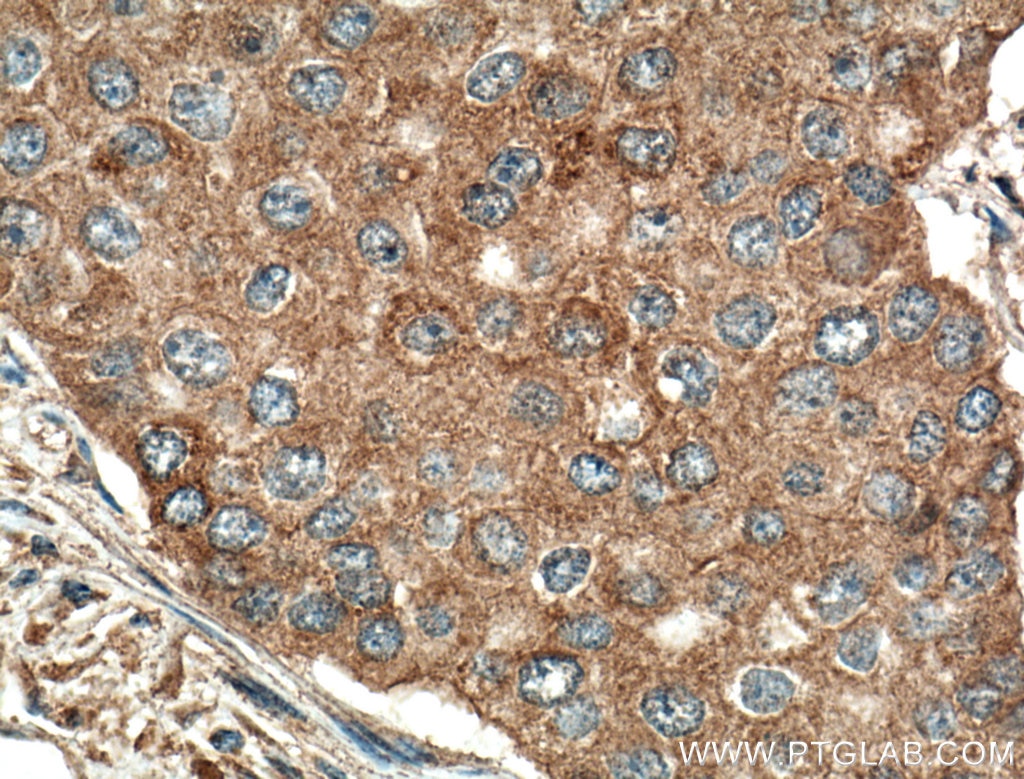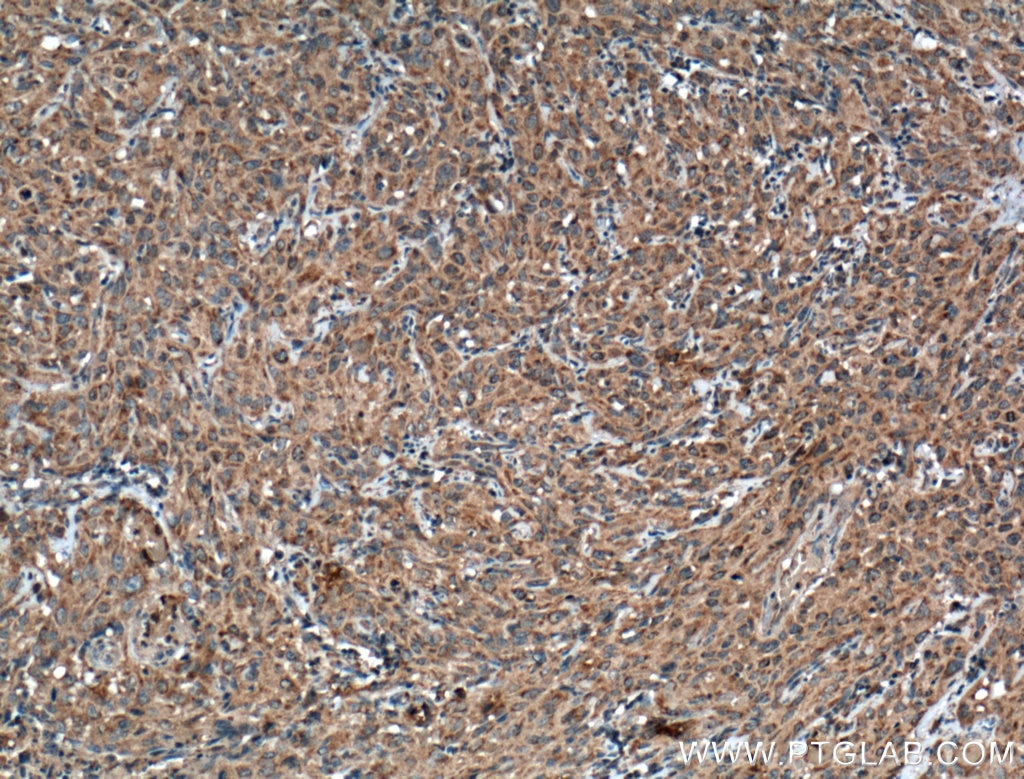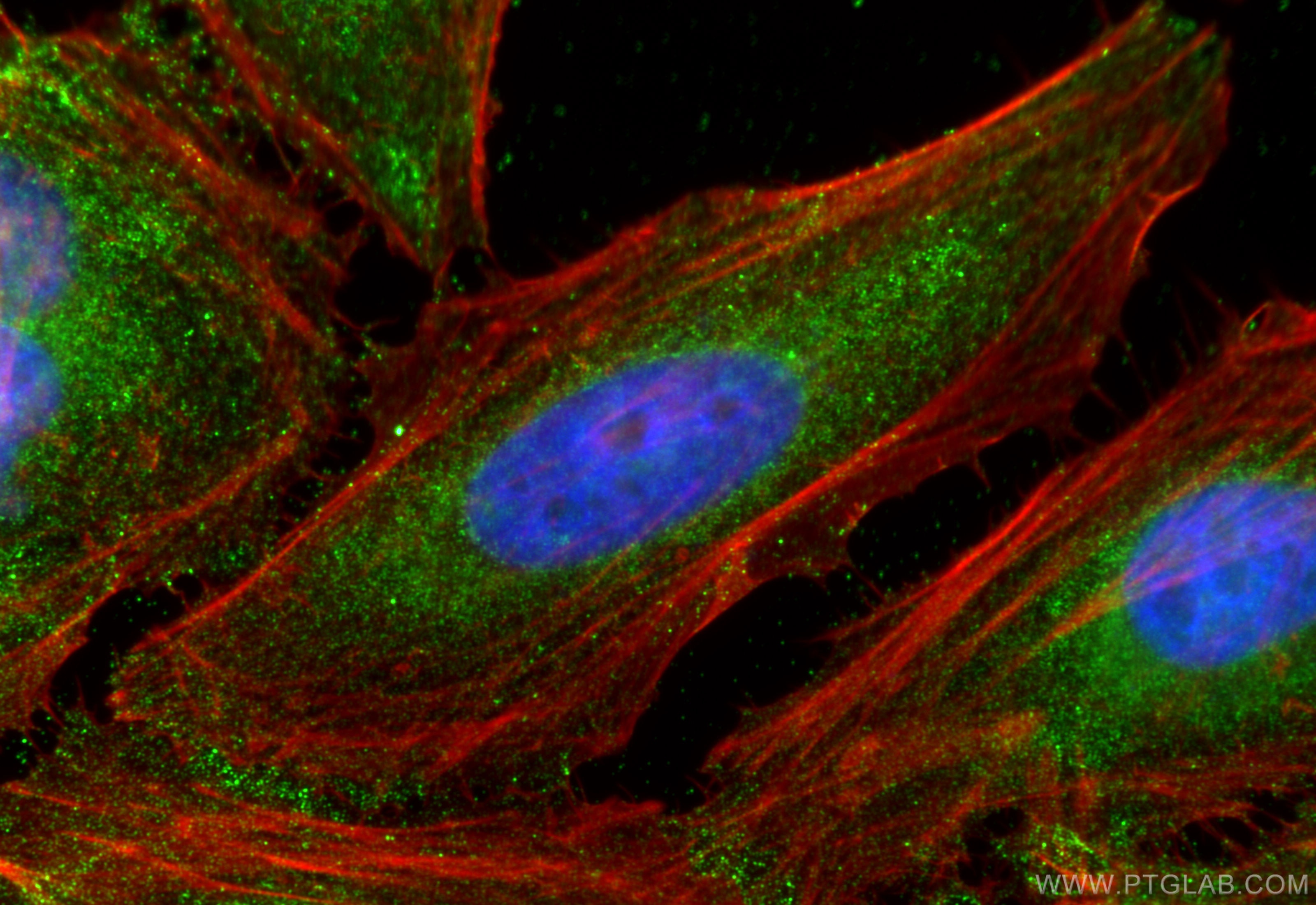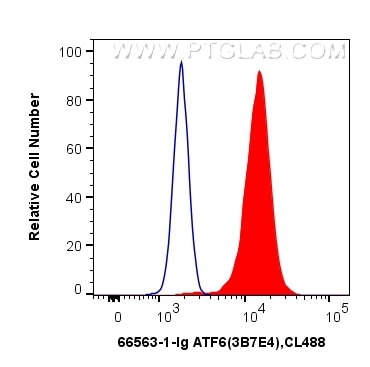- Featured Product
- KD/KO Validated
ATF6 Monoklonaler Antikörper
ATF6 Monoklonal Antikörper für WB, IHC, IF/ICC, FC (Intra), ELISA
Wirt / Isotyp
Maus / IgG1
Getestete Reaktivität
human, Maus, Ratte
Anwendung
WB, IHC, IF/ICC, FC (Intra), ELISA
Konjugation
Unkonjugiert
CloneNo.
3B7E4
Kat-Nr. : 66563-1-PBS
Synonyme
Geprüfte Anwendungen
Produktinformation
66563-1-PBS bindet in WB, IHC, IF/ICC, FC (Intra), ELISA ATF6 und zeigt Reaktivität mit human, Maus, Ratten
| Getestete Reaktivität | human, Maus, Ratte |
| Wirt / Isotyp | Maus / IgG1 |
| Klonalität | Monoklonal |
| Typ | Antikörper |
| Immunogen | ATF6 fusion protein Ag21456 |
| Vollständiger Name | activating transcription factor 6 |
| Berechnetes Molekulargewicht | 75 kDa |
| Beobachtetes Molekulargewicht | 90-100 kDa |
| GenBank-Zugangsnummer | BC014969 |
| Gene symbol | ATF6 |
| Gene ID (NCBI) | 22926 |
| Konjugation | Unkonjugiert |
| Form | Liquid |
| Reinigungsmethode | Protein-G-Reinigung |
| Lagerungspuffer | PBS only |
| Lagerungsbedingungen | Store at -80°C. 20ul Größen enthalten 0,1% BSA. |
Hintergrundinformationen
Activating transcription factor 6 (ATF6) is a transcription factor that acts during endoplasmic reticulum stress by activating unfolded protein response target genes. Binds DNA on the 5'-CCAC[GA]-3'half of the ER stress response element (ERSE) (5'-CCAAT-N(9)-CCAC[GA]-3') and of ERSE II (5'-ATTGG-N-CCACG-3'). Binding to ERSE requires binding of NF-Y to ERSE. Could also be involved in activation of transcription by the serum response factor.During unfolded protein response an approximative 50 kDa fragment containing the cytoplasmic transcription factor domain is released by proteolysis. The cleavage seems to be performed sequentially by site-1 and site-2 proteases. The fully glycosylated form of ATF6, a 670 amino acid protein, exhibits an electrophoretic mobility of ~90 kDa in denaturing SDS-gels, in part because of the glycosylated modifications. ATF6 has 3 consensus sites for N-linked glycosylation and exists constitutively as a glycosylated protein. Differentially glycosylated ATF6 forms may result from mutations or experimental treatment (PMID:15804611) (PMID:14699159). The antibody recognizes cleaved and fully glycosylated forms of ATF6.
